This DC EV charger has a charging power range from 20kW-80kW. It is compact and flexible in its installation.
✲ One Hour Charging: Cars Adds About 200-800km
✲ Connector Standard: CCS / CHAdeMO / GBT
✲ Communication Protocols: OCPP1.6J
✲ Quality Certification: ISO9001, CE, ect.
✲ Application: Business Premises, Hotels, Workplaces, Charging Stations, etc.
The DC EV chargers on this page feature two types of mounting, either Wallbox or Pedestal. It has been designed to be compact with a small footprint. It can install more chargers in the same site. And it can charge two EVs at the same time, which greatly improves the utilization rate of the charger.
Let me give you an example to understand the concept of 80kw. Suppose you have a regular passenger car. Its usual 100km electricity consumption is 10 degrees (kwh). For ease of calculation, let’s disregard the conversion rate. A DC 80kw EV charger will charge 80kwh in 1 hour. This is the equivalent of adding 800 kilometers of range to your electric car. If 2 cars are charging at the same time, the range is halved.
Video: TKT DC EV charger charging test
A DC EV charger is a device that converts AC power from the grid to DC power and delivers it directly to the battery pack of an EV for charging. It first communicates with the battery management system (BMS) of the electric vehicle. Then it adjusts the charging voltage and current according to the real-time status of the battery. The safety protection module monitors in real time and all the charging process is very safe.
The main components of a DC EV charger are: charging module, control system, operator interface, communication module, and safety protection device.
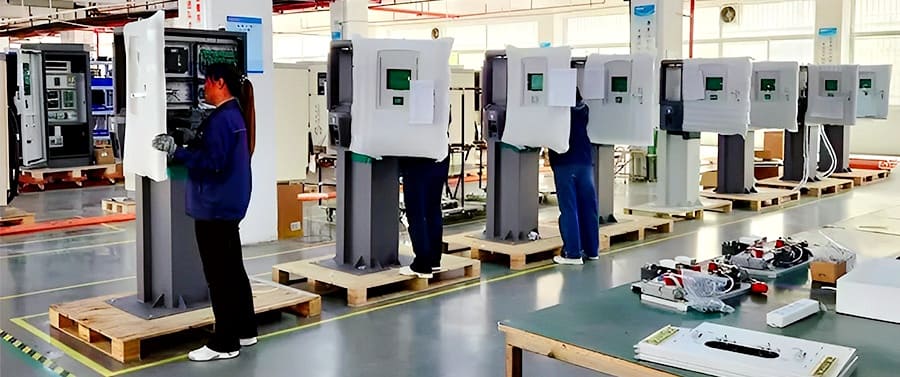
One of TKT’s DC EV charger production workshops
1. Multiple Protection: comprehensive protection for vehicles, people and equipment.
2. Modular Design: Upgrading and maintenance are flexible and simple.
3. Fast Charging: For common electric vehicles, charging time only takes 60 to 90 minutes.
4. Dynamic Load Balancing: improve charging efficiency and charging pile utilization.
5. Advanced Management System: easy for customers to operate. Manager data is clear.
6. Hundreds of Patents: excellent quality, affordable price.
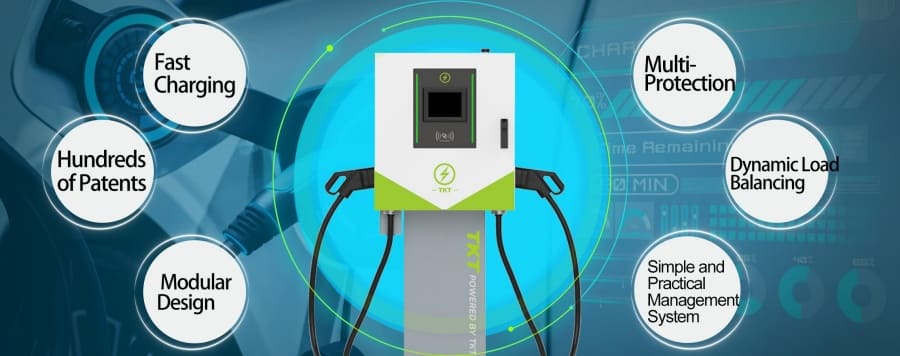
Learn more about the 6 advantages
1. With integrated OCPP, the charger can be easily connected to our cloud charging management system for easy operation and maintenance.
2. Support RFID reader for user authentication;
3. 8″ LCD touch screen and user-friendly interface.
4. Support wired / wireless network LAN, 4G.
5. Support OCPP 1.6J for online payment and intelligent monitoring.
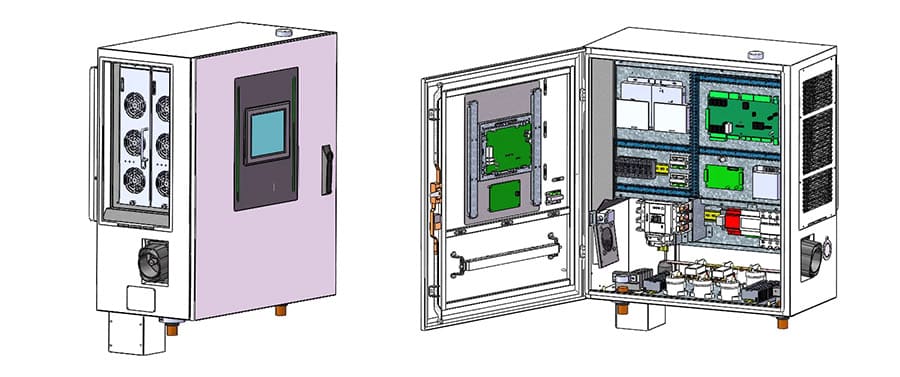
DC EV Charger Design Drawing
TKT is strong and has a wide range of DC EV charger product models. We are so confident in the quality of our products that we offer a 24-month warranty on all DC chargers. Our products are exported to more than 40 countries around the world, and we have formed long-term and stable relationships with well-known vehicle manufacturers such as BYD and Tata Motors.
| Power | 20kW | 30kW | 40kW | 60kW | 80kW |
| Charging Outlet | 1 connector | 1 connector | 1 connector | 2 connector | 2 connector |
| Input Voltage | 3-Phase 400V ±15% AC | ||||
| Output Connector | CCS, CHAdeMO, GBT optional | ||||
| Working Frequency | 45~65Hz | ||||
| Power Factor | ≥0.99 | ||||
| Efficiency | ≥94% | ||||
| Display | 8” LCD Touch Screen | ||||
| Language | Chinese, English, Russian, Other languages support customization | ||||
| Payment | Mobile APP / RFID / POS | ||||
| Network Connection | 4G / Lan | ||||
| Communication Protocols | OCPP1.6J | ||||
| Working Temperature | -30°C ~ +50°C | ||||
| Protection | IP54 | ||||
| Dimensions (L*W*H) | 830*459*1686 millimetres | ||||
| Cable Length | 5 meters | ||||
| Certificate | ISO9001, IATF16949, NTC CE, IEC61851-1, IEC61851-23, IEC61851-21-2, etc. | ||||
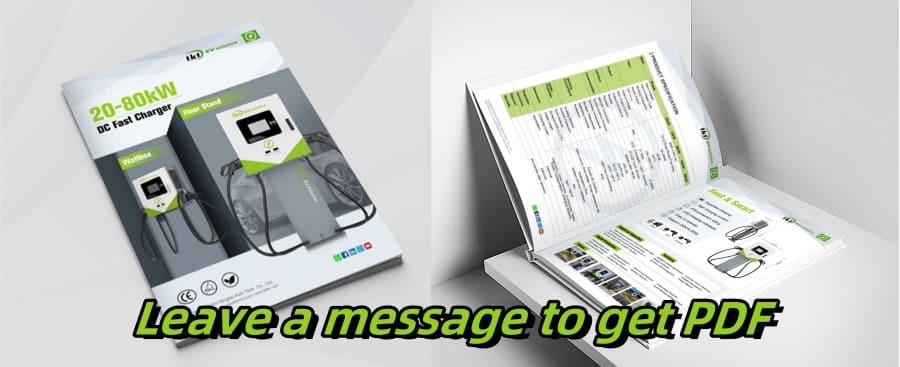
1. Charging Solutions for All Commercial Locations
With the popularity of electric vehicles, more and more business premises are in need of DC Fast Charger. For example, Office buildings charging stations, parking lot ev charging stations, ev charging stations for hotels, shopping mall charging station, gas station charger, etc. We have exported to more than 40 countries and regions including Thailand, India, Malaysia, Mexico, Germany, and France.
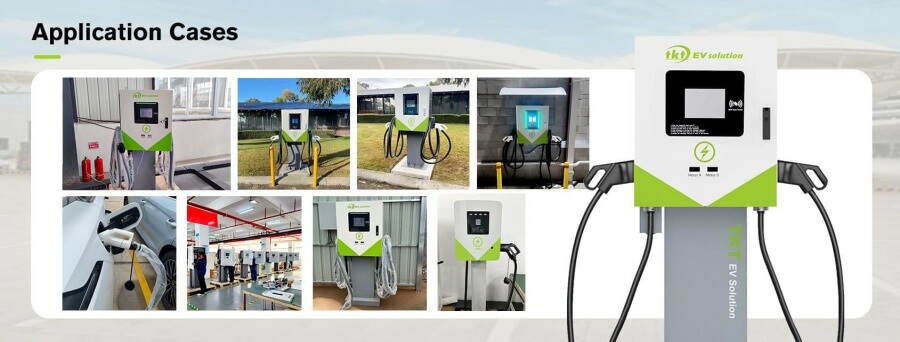
Click to view more high-definition cases
2. Charging solutions for large fleets
Common types include public transport, transportation and logistics industries. We have undertaken electric bus charging station in the USA, bus charging station in Canada, taxi car charging station in Australia, electric truck charging station in the UK, etc. Our DC Fast Charger has increased the frequency of vehicle trips by more than 20%.
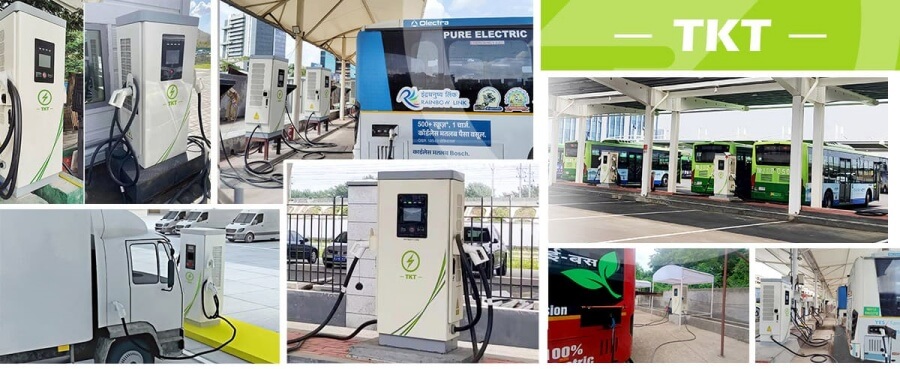
Click to view more high-definition cases
We attach great importance to product quality, and we will conduct up to 16 inspections again before each delivery. These include wiring and routing, insulation resistance checks, circuit breaker and emergency stop function checks, internal power supply DC checks, touch screen checks, thermistor checks, fan function checks, charging history checks, remote communication function checks, and more.

Although DC charging has a certain impact on the battery life of EVs, this impact can be minimised and the battery life extended by means of a reasonable charging strategy and advanced battery management techniques.
Battery management systems and battery technologies for modern electric vehicles have been greatly improved. Many EVs are equipped with advanced battery management systems that can monitor the status of the battery in real time and adjust the charging strategy to minimise the negative impact on battery life. In addition, some automakers offer both fast and slow charging modes for users to choose from, so that they can select the appropriate charging method according to their needs and actual situation.
DC charging for EV is an efficient charging method. It converts alternating current (AC) from the grid to direct current (DC) through a DC charger and transmits it directly to the battery of the EV. Fast charging is achieved by the above method.
Generally, this is not possible. This is because the voltage at home is usually 220 V. But the minimum voltage required for a DC EV charger is 380 V. This is usually used in commercial applications. In addition, the average home parking time is long, charging with an AC EV charger is enough to fill up.
1. Grid access and alternating current conversion
The external grid provides 380V three-phase AC power to the DC charger. The AC power is converted to DC power by the charging module inside the DC charger.
2. Charging parameter matching and communication:
The DC charger communicates with the battery management system (BMS) of the EV to know all the status of the battery. Then based on the information provided by the BMS, the charger adjusts the output voltage and current in real time.
3. DC Transmission and Charging:
The DC charger transmits DC power directly to the power battery through the high voltage harness and DC charging gun. Thus the charging time is significantly reduced.
4. Charging process monitoring and protection:
During the whole charging process, the charger monitors the battery’s voltage, current, temperature and other parameters in real time to ensure the safety of the charging process.
5. Charging completion and settlement:
When the battery reaches the preset value or is full, the user can view the charging information through the interface on the charger and make payment and settlement.
TKT EV Solution was founded in 1998. So far, it has obtained many quality certificates such as ISO9001:2015, IATF16969:2016, CE, EMI/EMC, etc. And owns more than 100 related patents.
dc ev charging stations, ev dc fast charger, ev dc charger, dc ev charging, dc charger for ev, dc ev charging station, dc fast charger for ev, ev dc charging stations, dc charger ev, ev dc fast charging stations, 22kw dc ev charger, 30kw dc ev charger, dc ev charger manufacturers, dc ev charger price, dc ev fast charger, dc fast charger ev.
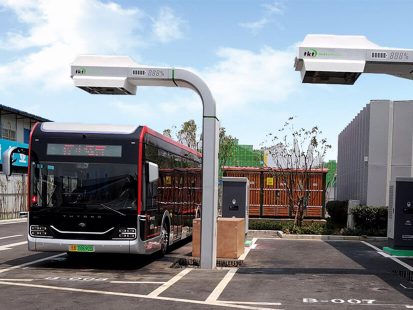
An article telling you about the common types of electric bus charging station. What should you pay attention to when planning the layout?
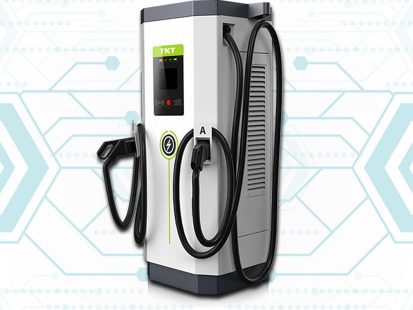
Introduction to DC chargers. Includes what is a DC charger, how to choose a DC charger, factory tours and more!
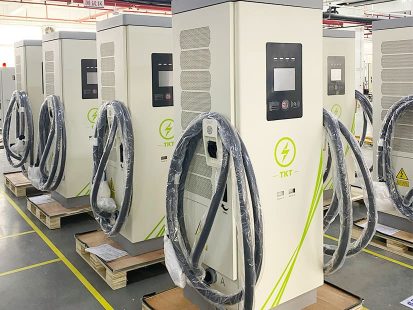
Mainly covers the basics of fast charging stations and an introduction to the strengths of TKT DC ev charger manufacturers.